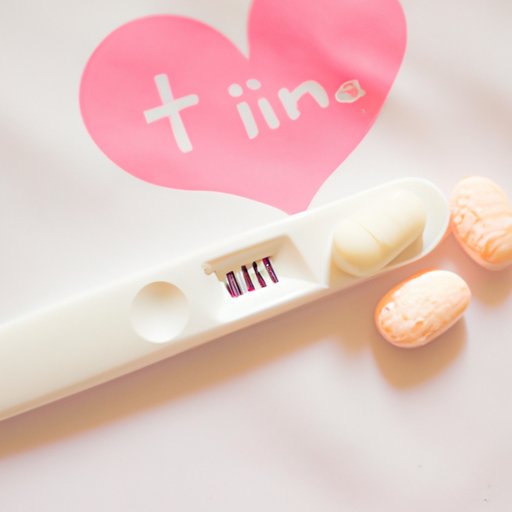
Introduction
There are many myths surrounding pregnancy and menstruation that can often lead to confusion and anxiety. Common misconceptions include the idea that you can’t get pregnant while on your period or that you can only conceive during ovulation. However, the truth is far more complex.
In this article, we’ll explore the question – can you get pregnant on your period? We’ll take a closer look at the science behind menstruation, ovulation, and fertility and provide evidence-based information to debunk myths and provide useful tips for reducing pregnancy risks on your period.
The Truth About Getting Pregnant During Your Period: Debunking Common Myths
One of the most common myths about getting pregnant during menstruation is that it’s impossible. While it’s true that the chances of conception are lower during this time, it’s still possible to get pregnant, especially if you have a shorter menstrual cycle.
Another misconception is that having sex during your period is a reliable form of birth control. However, this method is not effective as sperm can survive inside the body for up to five days after intercourse, which means they can still fertilize an egg once ovulation occurs.
Understanding Your Fertility: Is it Possible to Get Pregnant on Your Period?
To understand whether getting pregnant on your period is possible or not, it’s essential to understand how the menstrual cycle and ovulation work. The menstrual cycle is a roughly 28-day process, during which the uterus prepares itself for possible pregnancy by thickening its lining.
Ovulation occurs about halfway through the menstrual cycle when an egg is released from the ovary and moves down the fallopian tube, where it can be fertilized by sperm.
The likelihood of getting pregnant varies throughout the menstrual cycle. The highest risk of pregnancy occurs during the five days leading up to ovulation and the day of ovulation. However, it’s also possible to get pregnant outside of this window as sperm can survive inside the body for several days.
While the risk of getting pregnant during your period is low, it’s not impossible. If you have a shorter menstrual cycle (less than 28 days), the time between ovulation and your next period may overlap, increasing the risk of pregnancy.
The Conception Conundrum: Decoding the Science of Ovulation and Menstruation
The menstrual cycle and ovulation are regulated by a complex interplay of hormones such as follicle-stimulating hormone, luteinizing hormone, and estrogen. Various factors can affect fertility, including age, health status, and medications.
Age, in particular, plays a significant role in fertility as the quality and quantity of eggs decline as a woman gets older. Women over the age of 35 may have a more challenging time getting pregnant, even during optimal fertile times in their menstrual cycle. Additionally, underlying health conditions such as polycystic ovary syndrome or endometriosis can also affect fertility.
Breaking the Taboo: Talking About Sex and Pregnancy During Menstruation
For many people, talking about sex and pregnancy can be uncomfortable, particularly when it comes to menstruation. However, open and honest communication is crucial for maintaining sexual and reproductive health.
Talking to your partner about your menstrual cycle, fertility, and birth control options can help reduce the risk of unwanted pregnancy and ensure both you and your partner’s needs are met.
Managing Your Birth Control: How to Reduce Pregnancy Risks on Your Period
If you’re looking to reduce your risk of pregnancy during your period, there are several birth control options available. Hormonal birth control methods such as pills, patches, and injections work by preventing ovulation, while barrier methods such as condoms and diaphragms prevent sperm from reaching the egg.
It’s essential to use birth control consistently and correctly to reduce the risk of pregnancy. Additionally, it may be helpful to track your menstrual cycle using apps or calendars to identify your fertile window and avoid having sex during this time.
Exploring Alternatives: Options for Conceiving Without Waiting for Your Period to End
If you’re struggling to conceive, there are alternative methods such as in vitro fertilization and other fertility treatments. It’s essential to consult with a healthcare professional to determine the best treatment plan for your individual needs.
If you’re interested in pursuing these options, many resources and support groups are available to provide further information and guidance.
Conclusion
Getting pregnant on your period is possible, albeit less likely than other times during your menstrual cycle. Understanding your fertility and utilizing effective birth control methods can significantly reduce the risk of unwanted pregnancy on your period.
Whether you’re planning for a family or seeking to avoid pregnancy, open and honest communication about sexuality and fertility is essential for maintaining sexual and reproductive health.
Remember, there is no one-size-fits-all approach when it comes to sexual and reproductive health. Consulting with healthcare professionals and utilizing available resources can help make informed decisions and achieve optimal sexual and reproductive health outcomes.




